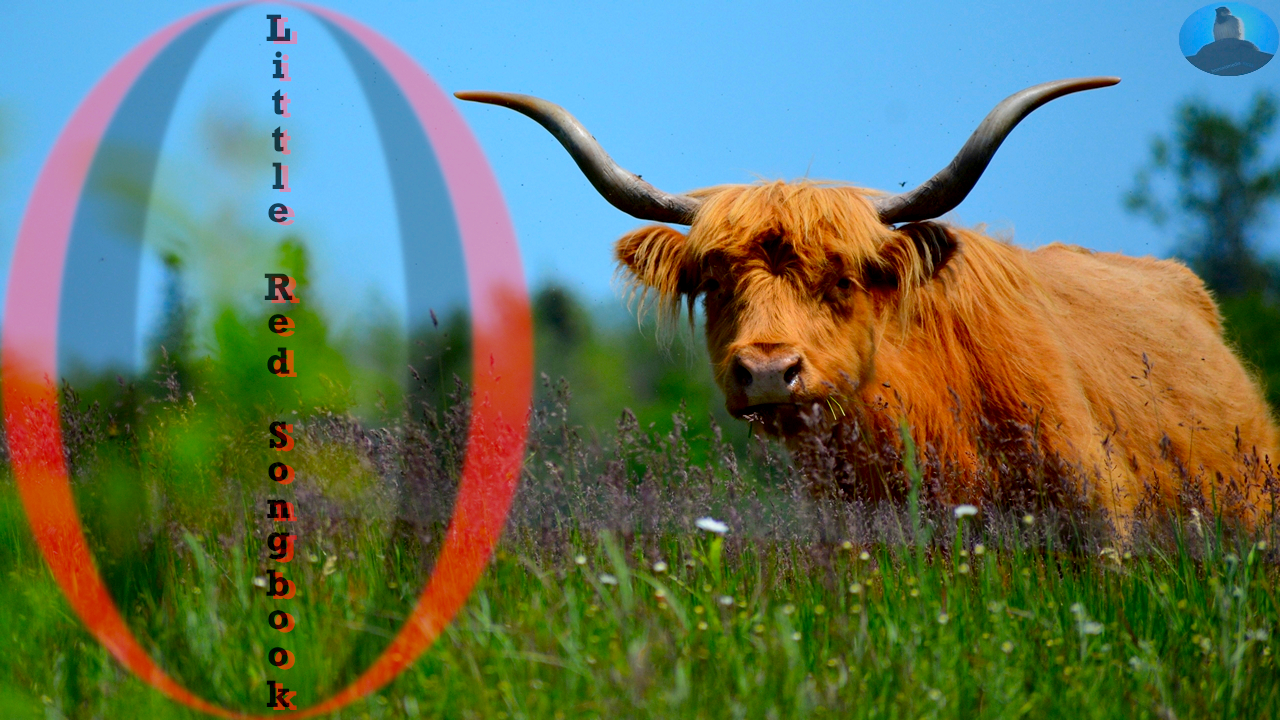
Wobbly Doxology is an early twentieth century adaptation of the Protestant hymn which itself is a version of the Catholic tradition. The Catholics probably borrowed this praise of God's name from the Jewish Kaddish. Catholics praise the Trinity at the end of chants (canticles), psalms and hymns during authorized rituals. According to official documents, Luke 2:14, "Greater" Doxology--Gloria in exclesis Deo--is what the angels sang when Jesus was born.
The Protestants kept the tradition but changed it into "Common" Doxology. Thomas Ken wrote the common version for the Church of England in the 1670s. This was based on William Kethe's English translation of the Latin Psalm 100 from the 1560s. The translation is also known as "All People That on Earth Do Dwell."
In this version the words are accompanied by music credited to Louis Bourgeois (1551). Bourgeois was a major contributor to the Genevan Psalter of 1539. This French hymn book--overseen by Parisian Huguenot John Calvin in Switzerland--is the basis of many hymnals including modern Anglican and Anglophone traditions inherited by America that eventually inspired the Wobblies. "The Doxology" appears in many hymnals and the accompanying sheet music usually includes some of this history.
Not on the sheet is the religious significance of this hymn as a protest song. This was an English adaptation (via French) of Latin symbols, rituals, words and music. It functioned as a critique of Church authority of the divine Pope in Rome and the clergy he authorized. It is also praises their shared God.
This English dissenting tradition of John Wycliffe preceded the European Reformation and produced Anglo interpretations of Christian tradition like the King James bible, Book of Common Prayer and the Common Doxology. This protest against Roman Papal authority is today, ironically, the state religion of the British Empire located in Westminster Abbey instead of St. Paul's Cathedral; and overseen by the head of the House of Windsor instead of the Pope.
The Anglican tradition reproduced the Common Doxology in America. In fact, all of the European Doxologies--Kaddish, Greater and Common--eventually came to America along with countless other versions of praise. These joined Antebellum Era interpretations of Christian praise from the Second Great Awakening.
These American traditions include charismatic worship overseen by lay preachers at camp meetings in America. The camp tradition is one step further removed from authorized and regimented Latin religious and British imperial authority; but still of the same western Christian tradition.
By the Civil War, a significant portion of American folk music included tunes and lyrics that translated as Western music through this path. This includes the Wobbly Doxology. This song first appeared in the 35th edition of the Little Red Songbook credited to the "Australian IWW." Utah Phillips, a recent Wobbly troubadour, punctuated his performances with Wobbly Doxology in the inverted, sarcastic and iconoclastic tradition of the IWW.
The religious heresy of Common Doxology coincided with political fragmentation in Europe. The result was state churches, like the Church of England. Heretic clerics and sovereign princes allied against the Pope's religious and political monopoly.
Both "Common" and "Wobbly" Doxologies are protest tunes. The Wobblies were anarchists and internationalists. They worked with an American framework defined by the founders and the lay preachers. They used Enlightenment concepts legible to the ruling class to defend their revolutionary politics. They co-opt familiar concepts, rituals and language to undermine authority. An inversion of Christian praise, the Wobblies used sharp language castigating the ruling class. The internationalist significance of this protest song is as critique of global imperialism which is a later stage of nationalism, a later stage of capitalism, etc.
American nationalism includes multiple Doxologies. Those imported from Europe predate the federal constitution and the European Reformation. These are public protest tools and anybody with some freedom to dissent can use them to critique whatever authority.
There have been uneven historic results to this method. The Anglicans swapped a theocracy based in Rome for one in Westminster. The colonists inherited this regime. The Americans revolted and proclaimed no state religion. This ultimatum fluctuates like other American claims to republicanism or free speech. Two themes--decentralization (localization) and reform--seem more apparent than the international revolutionary goal of the Wobblies.
The romantic IWW ethic is a theory of the early twentieth century. These Wobbly ideas are different than the modern pragmatics of state socialism (Stalin) with national characteristics (Deng) and democratic centralism (CPUSA). Pragmatic socialism is not revolutionary nor international.
"Wobbly" Doxology and the anarchistic, revolutionary IWW are not natural allies of pragmatic state socialism with national characteristics. The dialectic of progressive national reform and permanent international revolution as a theme in leftist politics. Without extreme reconciliation, there might not be a resolution to this conflict that includes both groups.
IWW. "Wobbly Doxology" Songs of the Workers To Fan the Flames of Discontent: The Little Red Songbook "Limited Centenary Concert Edition" (first edition 1909) Philadelphia: Industrial Workers of the World, June 2005. pg: 13.
Rosalie Sorrels & Utah Phillips. "Wobbly Doxology" The Long Memory St. Paul: Red House Records, 1996. track 15.